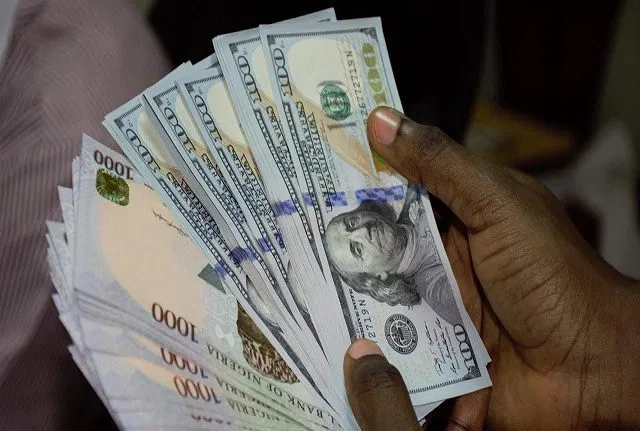The exchange rate between the naira and the dollar may be further devalued according to information contained in the Medium-Term Expenditure Framework and Fiscal Strategy (MTEF/FSP) report recently released by the Federal Ministry of Finance, Budget, and National Planning.
The report acknowledges the recent devaluation which the CBN likes to call “adjustment” and highlights generally accepted belief that a further devaluation could be in the offing.
“The official exchange rate has also been adjusted upwards to N360/US$1 by the Central Bank of Nigeria (CBN). At the Importers & Exporters Foreign Exchange (IEFX) window, where the bulk of foreign exchange transactions are consummated, the exchange rate recently depreciated from about N362/US$1 in January 2020 to over N385/US$1. While the CBN continues to make strenuous efforts to stabilize the exchange rate, it is generally expected that the Naira will suffer further devaluation as Nigeria is projected to lose about US$26 billion in oil revenues, its principal source of foreign currency,” MTEF
What this means: The government’s admittance that another devaluation could be in the offing perhaps explains why speculators are still holding out and retaining the disparity between the parallel market rate and the exchange rate at the I&E window. The black market rate has averaged N445/$1 while the I&E window trades at about N390/$1.
The President in his democracy day speech remained boisterous about Nigeria’s external reserve situation even though pent up demand for forex is estimated to be between $1 billion and $2 billion.
“The external reserves grew from $33.42 billion on April 29th, 2020 to about $36.00 billion in May 2020 which is enough to finance seven months of import commitments. We have witnessed eleven quarters of consecutive GDP growth since exiting recession. The GDP grew from 1.91% in 2018 to 2.27% in 2019 but declined to 1.87% in the first quarter of 2020 as a result of the decline in global economic activities due to the COVID-19 pandemic,” Buhari said.
Nigeria recorded an oil revenue shortfall of 30% in the first quarter of the year with oil revenue of N464 million representing a shortfall compared to N659 million budgeted in the same period. The actual receipt for non-oil revenue was N269 billion representing a shortfall of 40%. Nigeria now spends about 99% of its revenue on debt service.
With the government under pressure to earn dollars, reliance has shifted mostly towards foreign borrowing. The government recently received $3.4 billion from the IMF while the National Assembly as approved another $5.5 billion in new loans. Whilst this will increase Nigeria’s external reserve position, lenders could call for another devaluation if they are to subscribe to FGN Eurobonds. It is also important to note that devaluation increases government revenues and is another incentive to consider devaluing.
Most speculators who have spoken to Nairametrics on the condition of anonymity believe lower earnings from oil and exports, in general, will pile more pressure on the country’s external reserve position. They also bet that demand pressure for dollars will force another devaluation as dollar inflows remain dampened. They cite the lockdown as temporary succour that will evaporate once full business activities commence and businesses demand forex to import.
Source: Nairaetrics











